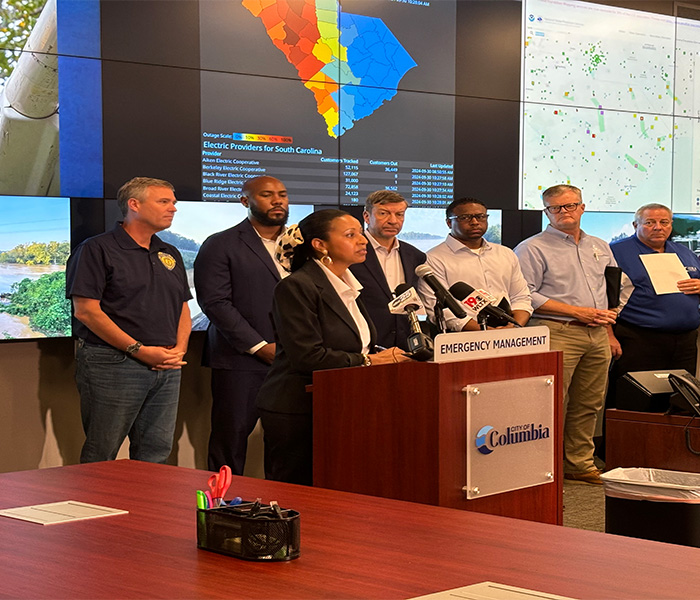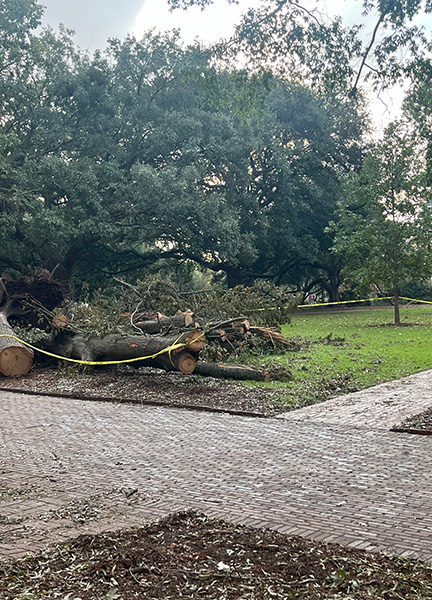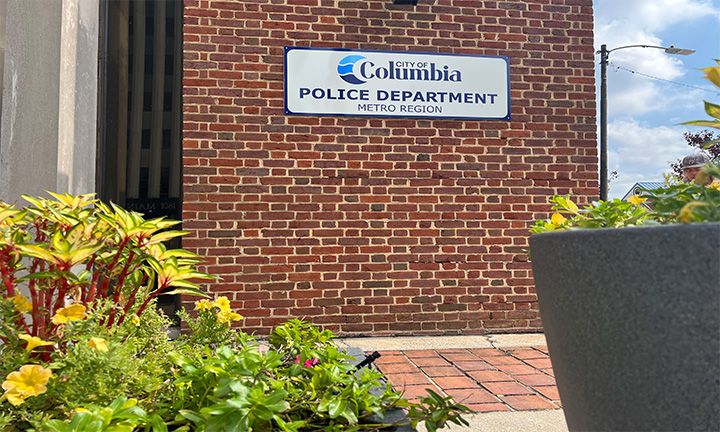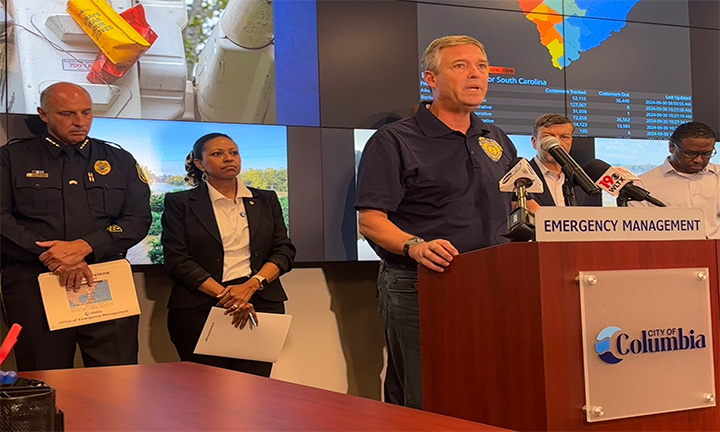City of Columbia officials address the recovery efforts after Hurricane Helene’s rampage. (Photo by Caleb Deaton/Carolina News & Reporter)
An unexpectedly high number of trees downed by Hurricane Helene continues to be the reason many in the Columbia area are without power.
Some 30,000 residents remained on Monday without electricity after Helene’s rain and heavy winds last week.
Helene, which hit Florida as a Category 4 storm, brought widespread destruction to South Carolina as a tropical storm. The Department of Public Safety reported the death total at 36 on Tuesday afternoon. In Columbia, Helene’s destruction comes close to the anniversary of the city’s infamous October 2015 flooding, also caused by a tropical storm, an irony not lost on many officials.
The city’s water system, often vulnerable during strong storms, is not under threat of failure, City Manager Teresea Wilson said during a morning press conference.
“Mass flooding and the threat to our main drinking water source were critical issues in 2015,” Wilson said. “That is not the case today.”
But 162,000 residents in the Columbia metropolitan area lost power Thursday night and Friday morning, thanks to roughly 200 downed trees, said president of Dominion Energy of South Carolina Keller Kissam. Forest Acres lost another 100 trees, according to officials in that neighboring city.
“We’ve had more transmission lines out in the state with Helene than we did with (Hurricane) Hugo,” Kissam said.
Kissam said Dominion had to focus on getting trees off the transmission lines and addressing the substations over the weekend to safely and efficiently restore power to the region.
“I’m happy to report that within the city of Columbia we were at 38,000 customers out of power within the city limits at peak,” Kissam said. “That’s down to 8,000 today (Monday). For the whole metropolitan area, … we’re down to 30,000 right now.”
Dominion has stated that all affected customers should be ready to receive power by Thursday, Oct. 3.
Despite some online rumors of a troubled drinking water system, Assistant City Manager for Columbia Water Clint Shealy said the “canal supply is stable and operating exactly as intended.”
“Although the river level is approaching what we saw in 2015 – we had flow coming overland from the city flowing directly into the canal – we didn’t have the control of the headgates that we have now,” Shealy said.
The primary focus of Columbia Water is to keep any overflow of sewer or wastewater from the streets or homes of Columbia. There is no boil water advisory for Columbia, and Shealy said that was unlikely to change.
Columbia safety officials, meanwhile, reiterated many safety tips for residents, including avoiding using candles and keeping generators outside homes to avoid carbon monoxide poisoning. Officials also asked that all residents have patience during these trying times.
Lexington-Richland School District 5 moved to an e-learning day for Tuesday. Richland 1 closed schools and offices due to power outages, while Richland 2 had its schools and offices open for Tuesday.
A downed tree near the McKissick Museum on the University of South Carolina’s historic Horseshoe is one of many that fell due to Helene’s powerful winds. (Photo by Eileen Waddell/Carolina News & Reporter)
Columbia officials met downtown to urge residents to have patience as recovery continues this week. (Photo by Caleb Deaton/Carolina News & Reporter)
Mayor Daniel Rickenmann praised the teamwork between the city, Richland County deputies and Dominion Energy in the wake of Helene. (Photo from Columbia Police Department/Carolina News & Reporter)





